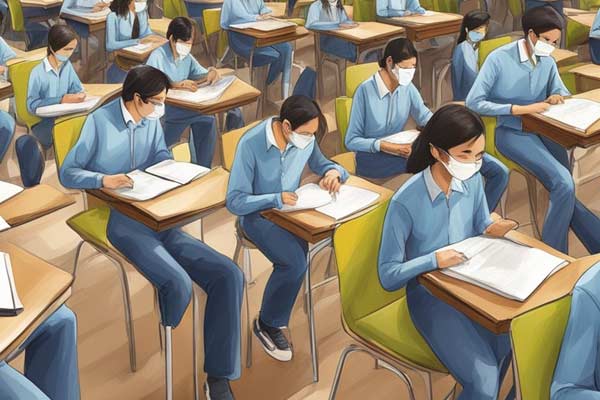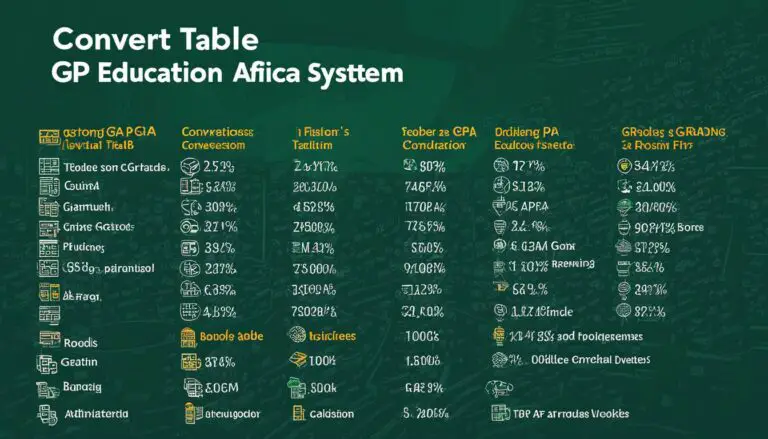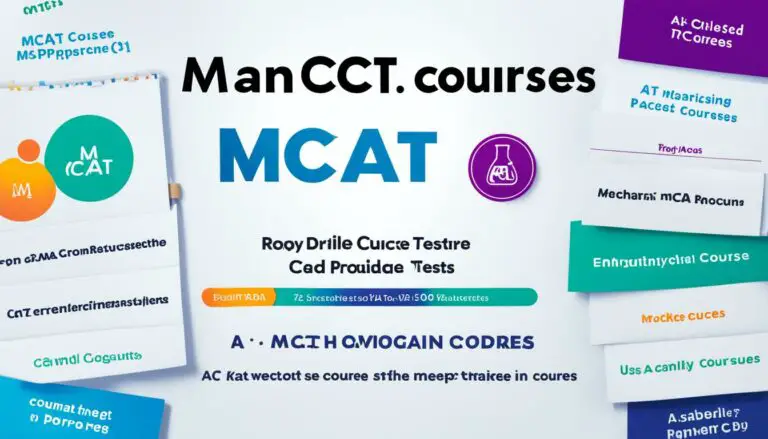Can IGCSE Students Appear for JEE? Explained
IGCSE students often wonder whether they can attend the Joint Entrance Examination (JEE) in India. The JEE is a highly competitive exam for admission to prestigious engineering institutions such as the Indian Institutes of Technology (IIT).
The IGCSE curriculum is designed for students aged 14 to 16 years and typically takes over two years. It covers various subjects, including languages, mathematics, sciences, humanities, and creative arts.
The answer to the question of whether IGCSE students can appear for JEE is a resounding yes. The IGCSE qualification is recognized by various education boards in India, such as CBSE, CISCE, and state boards, as a valid qualification for admission to Class XI and other higher secondary education programs.
Moreover, it is a recognized Class X credential, a prerequisite for admission to undergraduate courses in India.
Nonetheless, IGCSE students who wish to pursue engineering studies in India should be aware of certain crucial factors.
Understanding IGCSE
The IGCSE is a globally recognized qualification for secondary school students. Cambridge International Examinations, a part of Cambridge Assessment, a department of the University of Cambridge in the United Kingdom, offers it.
The IGCSE curriculum aims to get students ready for advanced academic pursuits, like the Cambridge Advanced Level (A-Level) and International Baccalaureate (IB) programs.
It’s split into two parts: the first stage is for Class X, and the second includes Class XI and Class XII.
IGCSE offers a broad selection of subjects, including essential ones like English, Math, and Science, alongside technical and vocational options such as Information and Communication Technology, Travel, Business Studies, and Tourism.
The IGCSE curriculum is structured to provide students with a balanced education, focusing on developing critical thinking, problem-solving, and analytical skills.
The program also emphasizes the importance of practical and hands-on learning experiences, with a strong emphasis on project work and coursework.
🌟 Hey Students! 🚀 Ready for the ultimate experience? Join us on Studentsinside.com's Facebook, YouTube, WhatsApp, and LinkedIn. Click now for tips, fun, and success vibes! 🌈✨ #StudentLife #JoinUs
In addition to the IGCSE program, Cambridge International Examinations also offers the Cambridge O Level program, an internationally recognized qualification for students in Class X.
The O Level program is similar to the IGCSE program but with a narrower range of subjects.

Understanding JEE
In India, the Joint Entrance Examination (JEE) is a vital nationwide test that aspiring engineering students need to pass to gain admission to prestigious institutions such as the Indian Institutes of Technology (IITs), National Institutes of Technology (NITs), and other centrally funded technical institutions (CFTIs).
The JEE comprises two main stages: JEE Main and JEE Advanced. The National Testing Agency (NTA) administers JEE Main, a qualifying exam for JEE Advanced.
JEE Advanced, on the other hand, is conducted by the Joint Admission Board (JAB) and is the key to gaining entry into the prestigious IITs.
The JEE Main is conducted in two modes: pen and paper-based and computer-based.
The pen and paper-based exam is conducted in January and April, while the computer-based exam is conducted in March and April. The JEE Advanced is conducted in pen and paper mode.
To qualify for the JEE Main exam, a candidate must complete their 10+2 examination or an equivalent qualification with Physics, Chemistry, and Mathematics as mandatory subjects.
If you’re an IGCSE student, you can also take the JEE Main if you meet the eligibility requirements.
To be eligible for JEE Advanced, a candidate must have qualified JEE Main and be in the top 2,50,000 candidates. IGCSE students can also appear for JEE Advanced, provided they meet the eligibility criteria.
Eligibility Criteria for JEE
The JEE (Joint Entrance Examination) is a nationwide entrance test that grants access to various undergraduate engineering and architecture programs in India. While JEE is primarily for Indian nationals, foreign nationals can apply for the exam. Here are the eligibility criteria for JEE:
- Nationality: Both Indian citizens and individuals from other countries are eligible to submit applications for the JEE.
- Age Criteria: There is no age limit for candidates appearing in JEE.
- Qualifying Exam: Applicants should have completed their Class 12 or an equivalent examination in either 2021 or 2022, or they should be preparing to take the exam in 2023.
- Subjects: To be eligible to apply for the JEE, candidates should have completed their Class 12 or an equivalent examination with a background in Physics, Chemistry, and Mathematics. Additionally, those who have included Biology or Biotechnology as an extra subject in their studies are qualified to apply.
- Top 20 Percentile: Applicants should either rank in the top 20% of their school boards or achieve a minimum of 75% total marks in their Class 12 or equivalent examination.
- Eligibility Certificate/Equivalence Certificate: Students who have completed their Class 12 or an equivalent examination from an international education board must secure an eligibility or equivalence certificate from the Association of Indian Universities (AIU).
- English Language: Candidates must have studied and passed English as a subject in their Class 12 or equivalent exam.
Role of AIU
The Association of Indian Universities (AIU) issues equivalence certificates for foreign qualifications.
However, AIU does not provide equivalence certificates for qualifications obtained through private study if the students haven’t enrolled in a school.
In India, the IGCSE qualification is recognized by the CBSE, CISCE, and state education boards as a valid entry requirement for Class XI and other higher secondary education courses.
It is also accepted as a Class X qualification, a prerequisite for admission to undergraduate programs in India.
The IGCSE program offers a wider range of subjects and promotes high academic standards through practical learning.
To qualify for the JEE (Advanced) exam, candidates need to first appear for the JEE (Main) exam, which is held in April by the JEE Apex Board.
For candidates seeking improvement in their Board examinations, there are two options.
They can either appear in one or more subjects and achieve a 75% aggregate mark after improvement, or they can improve in ALL subjects to be among the top 20 percentile of students in the corresponding academic year.
Comparing IGCSE with Indian Boards
The IGCSE program is acknowledged by CBSE, CISCE, and various state education boards in India as an eligible qualification for enrollment in Class XI or other higher secondary education programs.
Additionally, it is considered a valid Class X qualification, a requirement for admission to undergraduate courses in India.
When comparing IGCSE with Indian boards such as CBSE, ICSE, and CISCE, there are some key differences to consider. For example, CBSE and ICSE are national boards, while CISCE is a private board.
CBSE is known for its focus on science and mathematics, while ICSE is known for its emphasis on English and literature. CISCE is known for its liberal arts education.
Another difference is in the board examination format. CBSE and CISCE conduct board examinations at the end of Class X and XII. In contrast, ICSE conducts board examinations only at the end of Class X.
IGCSE, on the other hand, allows for continuous assessment throughout the year, with final examinations at the end of the course.
In terms of eligibility for higher education courses such as JEE, NEET, and other entrance exams, IGCSE students are eligible to apply. However, they may need to meet certain requirements, such as taking specific courses or achieving a certain grade point average.
Admission Process
For IGCSE students who want to appear for JEE, the admission process is the same as for other students. They must first qualify for JEE Main, conducted by the National Testing Agency (NTA).
To be eligible for JEE Main, IGCSE students must have passed their +2 stage qualification with Physics, Chemistry, and Mathematics as core subjects.
After qualifying for JEE Main, IGCSE students must appear for JEE Advanced. The admission committee may require a letter from the exam board specifying the candidate’s aggregate marks to confirm their 75% aggregate.
The Joint Seat Allocation Authority (JoSAA) is responsible for conducting the centralized counseling process for admissions to 23 Indian Institutes of Technology (IITs), 31 National Institutes of Technology (NITs), 25 Indian Institutes of Information Technology (IIITs), and 28 Government Funded Technical Institutes (GFTIs).
The admission process for IGCSE students is the same as for other students, and they will be considered based on their JEE Main and JEE Advanced scores.
The merit list is created by considering the All India Rank (AIR) of the candidates. Seats are then assigned according to the candidates’ preferences and seat availability.
It is important to note that IGCSE students must also meet the eligibility criteria for admission into IITs, which includes passing the Class 12 examination with Physics, Chemistry, and Mathematics as core subjects.
Additionally, they must also score well in JEE Main and JEE Advanced to secure admission into the engineering colleges of their choice.
Courses and Exams
IGCSE students can appear for the Joint Entrance Examination (JEE) Main and Advanced exams, the gateway to prestigious undergraduate engineering courses in India.
To be eligible for JEE exams, students must pass the 10+2 exam with Physics, Chemistry, and Mathematics as compulsory subjects.
IGCSE students can choose to study medicine, dentistry, architecture, and more for their undergraduate courses, apart from the JEE. To pursue a medical degree, they must take the NEET exam, organized by the Medical Council of India.
In addition to JEE and NEET, there are several other aptitude tests that IGCSE students can take to pursue their desired undergraduate course.
Some popular tests include the Scholastic Aptitude Test (SAT), the American College Testing (ACT), and the International Baccalaureate Diploma Programme (IBDP).
It is important to note that each college or university has its own eligibility criteria and admission process. Therefore, students must research and gather information about the courses and colleges they are interested in before applying.
Understanding IB
The International Baccalaureate (IB) is a globally recognized educational program that aims to provide students with a well-rounded education emphasizing critical thinking, creativity, and personal development.
The program offers four educational programs for students aged 3 to 19, including the International Baccalaureate Diploma (IBDP), the most popular program among high school students.
The International Baccalaureate Diploma Programme (IBDP) spans two years and is geared towards preparing students for higher education.
This program involves students in six subject areas, each under these categories: Language and Literature, Language Acquisition, Individuals and Societies, Sciences, Mathematics, and the Arts.
In addition to these subjects, students are tasked with completing an Extended Essay and participating in a Theory of Knowledge course, along with engaging in Creativity, Activity, and Service (CAS) activities.
The IBDP is a demanding program that challenges students to think critically and independently.
It places a strong emphasis on honing crucial skills like research, analysis, and communication, which are essential for excelling in university-level studies.
Additionally, it aims to promote a worldwide outlook and nurture students’ respect for various cultures and concepts.
Students who complete the IBDP are well-prepared for university-level studies in various fields, including humanities, sciences, and social sciences. The program is recognized by universities worldwide and is highly respected by employers.
Education in India
India has a well-established education system with various courses available to students.
In India, there are two prominent educational boards: the Central Board of Secondary Education (CBSE) and the Council for the Indian School Certificate Examinations (CISCE).
Both boards accept the IGCSE qualification for admission to Class XI and other higher secondary education programs.
The IGCSE curriculum enjoys widespread acceptance in India and is acknowledged by state education boards. Students who have completed their IGCSE education can take entrance exams like JEE Main and Advanced, provided they have completed Class XII with Physics, Chemistry, and Mathematics as their core subjects.
Moreover, Uttar Pradesh, one of India’s largest states, also recognizes IGCSE as a valid qualification for undergraduate course admissions.
India is home to some of the top engineering and medical colleges in the world, and students who have completed their IGCSE education can pursue higher education in these fields.
All degree courses in India are taught in English, which makes it easier for international students to study in India.







